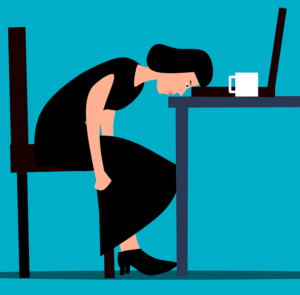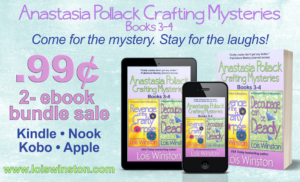Permission Not to Write
 What do you do when you’re suffering from the literary equivalent of a bad day on the mound? You’re all set to hurl a fast ball that should nip the corner of the strike zone and send the batter swinging at air when you wind up tossing a lob that he hits out of the park. In other words, you’ve got writer’s block.
What do you do when you’re suffering from the literary equivalent of a bad day on the mound? You’re all set to hurl a fast ball that should nip the corner of the strike zone and send the batter swinging at air when you wind up tossing a lob that he hits out of the park. In other words, you’ve got writer’s block.
Some people insist that there’s no such thing as writer’s block. Try telling that to someone who spent the last three hours staring at a blank computer screen. There are many reasons why the words don’t always come, but for me, often it’s because I’m just too tired to write. When I’m tired, my brain shuts down.
And when this happens, I’ve learned to listen to my body. I give myself permission to take a few hours off to rejuvenate. I’ll take a walk. Or watch a movie I’ve been meaning to see. Or curl up with a book by a favorite author or a new one I’ve wanted to read. Whatever I decide to do, I give myself permission not to feel guilty about doing it.
And that’s key.
Most writers can’t afford to quit their day jobs. We juggle our schedules to accommodate work, writing, and family responsibilities. Thus, when we have our writing time, we feel compelled to write and feel guilty when we don’t. We’re wasting that precious writing time. What we forget, though, is that we’re not perpetual motion machines. Writers, like everyone else, need down time. Time to relax. To play. To do nothing but daydream.
I’ve found that when I give myself permission not to write, I’m able to return to my writing with fresh energy and a brain no longer blocked.
I know this is counter to the conventional wisdom which states you should write through the block. Just stick your butt in the chair, place your fingers on the keyboard, and start typing – that bad writing is better than no writing, and you can always go back to fix what needs fixing. To me, that’s just as huge a waste of time as staring for hours at a blinking cursor.
Don’t let the purveyors of conventional wisdom bully you. Listen to your body. If you give yourself permission not to write, you might find that when you next sit down at the computer, you’ll be far happier with the words you produce. It works for me. You have nothing to lose by giving it a try.
What do you do when you hit a wall? Post a comment for a chance to win an audiobook of Revenge of the Crafty Corpse, the third book in my Anastasia Pollack Crafting Mystery Series.
 Also, through the end of the month, the Anastasia Pollack Crafting Mysteries, Books 3-4, featuring Revenge of the Crafty Corpse and Decoupage Can Be Deadly, is on sale for only .99 cents. Find buy links here.
Also, through the end of the month, the Anastasia Pollack Crafting Mysteries, Books 3-4, featuring Revenge of the Crafty Corpse and Decoupage Can Be Deadly, is on sale for only .99 cents. Find buy links here.
~*~
USA Today and Amazon bestselling and award-winning author Lois Winston writes mystery, romance, romantic suspense, chick lit, women’s fiction, children’s chapter books, and nonfiction under her own name and her Emma Carlyle pen name. Kirkus Reviews dubbed her critically acclaimed Anastasia Pollack Crafting Mystery series, “North Jersey’s more mature answer to Stephanie Plum.” In addition, Lois is a former literary agent and an award-winning craft and needlework designer who often draws much of her source material for both her characters and plots from her experiences in the crafts industry. Learn more about Lois and her books at her website www.loiswinston.com where you can also sign up for her newsletter and follow her on various social media sites.





Lois, you absolutely have permission to do whatever it takes to recharge your batteries for writing. One of the great things about writing is that you are the boss, and if you need a break, or ten, you can take them. I rarely hit a wall, but I do occasionally hit dead ends, where I’ve lurched into a plot hole that requires heavy-duty maintenance. My go-to solution is to exercise–on a treadmill or bike–where I can pump oxygen to my brain and think my way out of it.
It’s good to be the boss, isn’t it, Saralyn?
Lois, I spent almost two years not being able to finish Book 3 in my mystery series. Some might call it writers block, but I actually had nearly 70,000 words done and knew exactly how I wanted to end the book. But after two serious bouts of pneumonia and deaths of two family members, my brain was in such a fog, it too a long time to be able to write a coherent sentence, let alone a paragraph or a few more chapters. I simply couldn’t do it. After a while, I had to “give myself permission,” as you say. Happy to report that the manuscript is now at the editor’s.
Congratulations, Gay! Looking forward to reading it.
Lois, intriguing post, and I get what you’re saying. My frustration is when family life has been so consuming I cannot block out worry to write. I miss the days when I had long hours to play with my plot and my characters. Writing in spirts doesn’t work for me.
Donnell, as our lives change, we’re often forced to make changes to how we do things. Dealing with family issues is never easy. Hopefully, you’ll find a way to carve out longer chunks of writing time.
This seems to happen a lot lately. I keep thinking things will slow down on their own, but that doesn’t happen, so I have to take charge and STOP. I go for a walk or run or simply read a good book. Great post, Lois.
Kathleen, sometimes it takes trying different things to find that one thing that works best for recharging the creative juices. Having three to fall back on is great!
Lois,
I more than understand. After a year crazier than most, I gave myself permission to put writing aside and read once again for enjoyment – when I could find a few moments. It grounded me. That, plus things finally falling into place have re-energized me into believing I can write again.
Good for you, Debra! Wishing you calmer days ahead!
When I hit a wall I know it’s break time. A shower, a walk, or a coffee, usually does the trick. Thanks!
Or maybe all three, Lynn?
Hi Lois,
Good blog. We all need down time. It’s counterproductive when you don’t, or feel as if you can’t, take “me” time. Thank you for posting!
Glad you enjoyed the post, Mary!
Lois and others,
I have a different kind of writer’s block. I have it all the time. The only way I can write is sprints, preferably with company. So the write-ins and other write with me sessions save me.
Candace
Good blog, Lois. We all need to take time off periodically.
1.I’m not allowed to read for pleasure until I’ve done a set amount of time at the keyboard writing. Since I love to read, that seems to motivate me.
2.I’ll brainstorm by handwriting some new paragraphs to fix a scene problem or hole and then type it in.
3.Or I’ll read my chapter out loud to myself. I find my sticky issues easier that way and work on solving them.
Patricia, you seem very disciplined!
I have to trick myself. Once I get started, it’s fine.